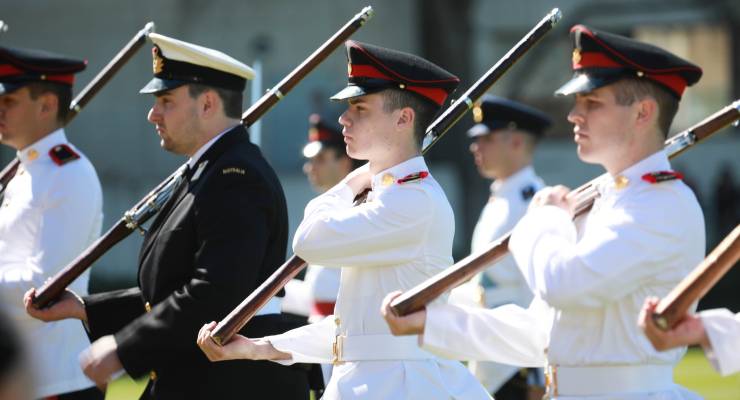
As the Australian Defence Force struggles to find personnel to fill crucial roles, its recruitment arm is pitching a lucrative creative advertising contract reported to be worth $10 million in revenue.
The contract will be a major asset for the firm that nabs it: last time the account changed hands, in 2019, the company that lost reportedly had to lay off up to 70 people.
But it’s also a big deal for the ADF, which has admitted a desperate need for recruits in a time of “major power strategic competition” and a “deteriorating … workforce situation”, according to the Defence Strategic Review released earlier this year.
On Monday, the Defence Department announced the contract would open up for new bidders in February. Marketing insiders expect a bidding war.
“This type of account would be the jewel in the crown for any creative agency. I expect a lot of big firms will compete for it,” Tim Riches, group strategy director at the branding consultancy Principals, told Crikey. “The government in general, and the ADF in particular, are one of those advertisers that are going to continue to spend regardless of the state of the economy. And the demands of ADF recruitment at the moment are likely to increase given the geopolitical situation.”
The current contract, awarded to US marketing giant VMLY&R in 2019, is valued at $112.7 million. That’s more than double its original value; extensions and amendments have seen the price for taxpayers balloon.
On its website, VMLY&R brags about multiple campaigns it’s created for defence force recruiting, including a text-based “gamified experience” called “The Mission”, an ad for the navy with a secret message hidden in the electromagnetic spectrum of an audio file, and an ad for navy drone pilot jobs with a “surreal twist”.
VMLY&R took over the contract from former holder Host/Havas, which had to lay off upwards of 70 staff when the account changed hands, according to Mumbrella. AdNews reported this week the account was estimated to be worth $10 million in revenue.
Increasing the workforce is a major priority for the ADF. The Defence Strategic Review said: “Defence is facing significant workforce challenges … across all areas of the ADF, [Australian public service] and defence industry.” Major initiatives such as the AUKUS submarine deal, and increased competition in the Indo-Pacific region, will continue to heap pressure on Defence to up its numbers.
Australian National University strategic and defence studies centre lecturer Bianca Baggiarini told Crikey defence forces in many democracies, including Australia, were struggling with recruitment and retention: “Many liberal democracies struggle to reconcile, basically, what the military is and what it reflects in our contemporary moment.
“In the 1970s there was a shift from the military as an ‘institution’ to an ‘occupation’. The institutional approach to the military saw it as a source of pride, emphasising notions of sacrifice and duty. Whereas the occupational approach says: the military is a career — just like any other — where I’m valued and where I discover myself and where everyone is equal and treated with heaps of respect.”
She said any new recruitment campaign would need to balance traditional military values with the needs and wants of today’s young people. This is a tricky balancing act, which reveals the tensions between the institutional and occupational approach.
“Military labour involves hierarchy, inequality and, most importantly, the possibility of tremendous personal risk in the form of death or injury for the nation,” she said. “Do young people today feel connected to their nation, fellow citizens, and traditional military values? I’ll be extremely curious to see what the new recruitment efforts come up with.”
Defence and VMLY&R were contacted for comment.
Would you be happy to have a son or daughter sign up to the ADF? Let us know by writing to letters@crikey.com.au. Please include your full name to be considered for publication. We reserve the right to edit for length and clarity.








Australian Governments have failed at initiating the first requirement for successful recruiting. Raise the public awareness that serving your country, in Defence is part of the social contract, we all have with our county.
As an eighty plus year old I come from a family associated with the Army. I served for 12 years. My father , uncles and cousins served in the Second World War. I had an uncle serve in the First World War and my son served in the reserve for a short period before circumstance change.
This is not a call to militarisms or war mongering, it is a simple fact understood by many people.